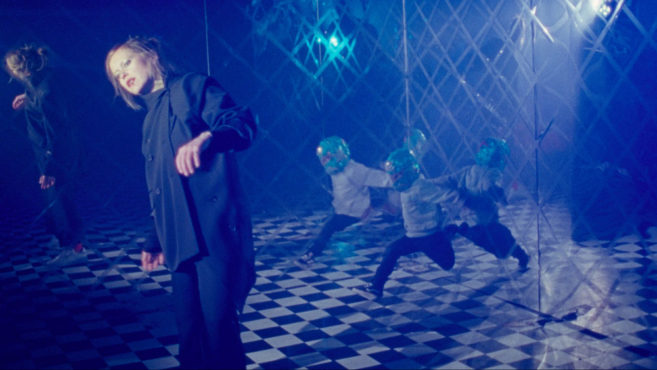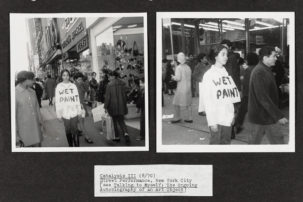Joan Didion once said of the act of writing that “setting words on paper is the tactic of a secret bully, an invasion, an imposition of the writer’s sensibility on the reader’s most private space.” The writing of American poet and essayist Anne Boyer is captivating in this way; she picks you up and you feel suspended in her embrace. In her pages Boyer makes you aware—as one is aware of the unseen parts of a lover’s body—of the way language can fold and unfold into revelations, abstractions and materialities.
In A Handbook of Disappointed Fate, a recent collection of short prose published over the last decade, Boyer seems to struggle with and against language and its many (im)possibilities. She argues that “poetry’s value could be restored if poems, like luxury goods, were scarce, rare, and expensive to produce.” To this end, she devises a series of difficult ways to publish poetry, including one in which you “Convince whales to choreograph their position and blow-hole-blowing so that from the sky, their blowing water looks like words.” You have to trust her, have to fully accept every premise fully to be able to access the next. If you do not abandon yourself to her words and worlds, then you have no chance of uncovering her superb propositions.
Boyer’s intimacy with language is related to a bittersweet loyalty to the power of reading. “Reading is not merely escapism and militant solitude,” she writes. “The world existed before books, and it always exists outside of them, and how a person should read is how a person must read, which is at least in duplicate, both always in this world and looking for another.”
And this is how Boyer writes: as a woman, a poor person, a sick person, a mother, a worker and a lover, always demonstrating a belief in collaboration and collective action. “We who work together toward the same end of a radical re-organization of the world do our best, think our hardest, write how we can and with what resources we have been given, but we also will often fail…but our failure is part of and fundamental to the collective project. We brave out errors in thought for the possibility that to see them demonstrated will allow others to get toward a rightness we missed.” She outlines programs for revolutions and itemizes desires (“the crush of proximity, the crush of lack of proximity…the crush on who leads with cruelty and ends with affection”). In one set of texts, she argues that art can make you rich and poetry can make you free, that is, that poets want autonomy and artists want wealth, or at the very least, to not be destitute. Although, she adds, “It is true, of course, that to go from being a poet to being an artist is like turning the other direction in a locked room.”
That notion of autonomy shimmers between every line; the idea that language is a portal, that it structures imagination and thought, is the underlying premise of A Handbook of Disappointed Fate. Looking through the present to what could be, what has been, what’s gone wrong or isn’t quite right, Boyer’s craft is the language of materiality—her lines and her narrative become the means to an alternative world.







